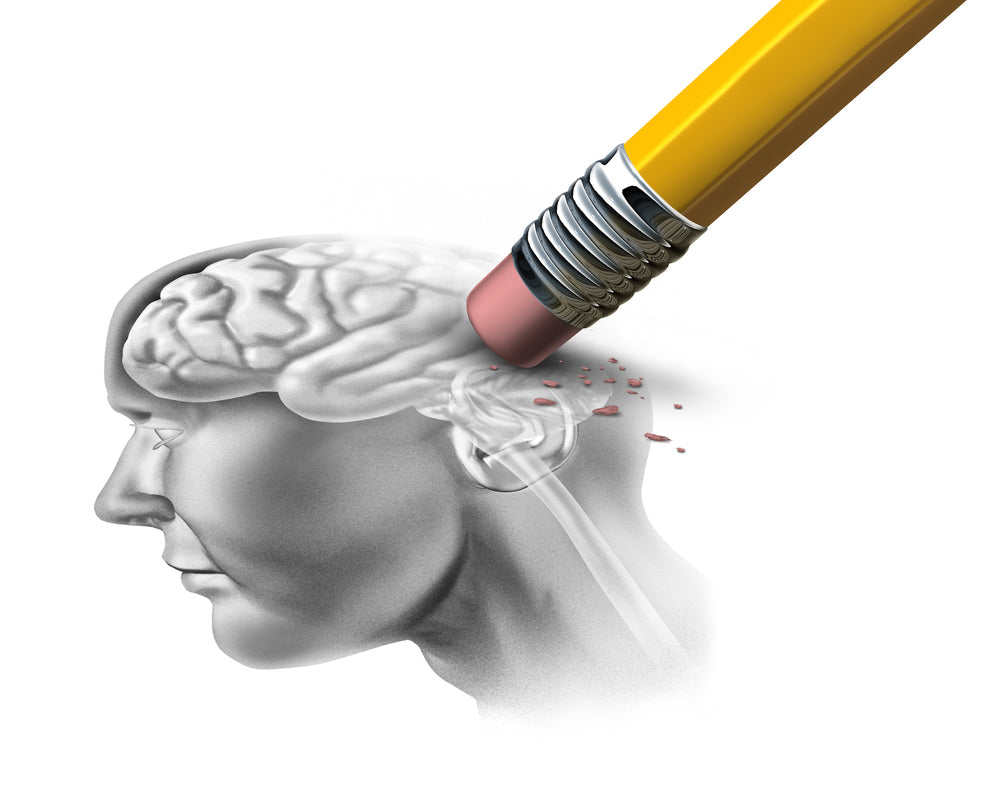In today's fast-paced world, where cognitive performance is more critical than ever, brain and memory health supplements, known as nootropics, have surged in popularity. These supplements enhance memory, focus, mental clarity, and problem-solving abilities, making them an essential tool for individuals aiming to optimize their cognitive functions1.

The Growing Demand for Cognitive Enhancement
The rising interest in nootropics isn't limited to a single demographic. While the 73 million baby boomers in America represent a significant portion of this demand, nootropics have also captivated a diverse audience, including college students, professionals, and even busy parents seeking a mental edge2.
However, the popularity of nootropics has led to a saturated market, with countless supplements promising cognitive enhancement. Unfortunately, many of these products fall short, often containing ineffective doses or low-quality fillers that fail to deliver the promised benefits3.
Given the abundance of options, it can be daunting to find a high-quality brain supplement. However, we're here to help. We've conducted extensive research to identify the key ingredients scientifically proven to support cognitive health. With this reliable information, you can navigate the crowded market with confidence and make informed decisions about your cognitive health.
Understanding How Nootropics Work
Nootropics are supplements that combine natural or synthetic vitamins, amino acids, minerals, fatty acids, antioxidants, and herbal ingredients to boost cognitive performance4. These ingredients enhance brain function, protect against cognitive decline, and improve mental clarity.
The Onset of Cognitive Decline
Research has shown that cognitive decline can begin as early as 45 years old, with a dramatic increase in decline observed in individuals aged 65-705. This decline is often exacerbated by a deficiency in essential nutrients, which play a crucial role in maintaining optimal brain function6. Additionally, chronic stress has been identified as a significant factor that can accelerate cognitive decline and impair memory7-8.
The Benefits of Nootropics
A well-formulated nootropic can offer a range of benefits, including:
- Enhanced Memory9
- Improved Focus and Alertness10
- Better Learning and Verbal Recall11
- Increased Mental Energy and Creativity12
- Reduced Stress and Cognitive Decline13
Key Ingredients to Look for in Nootropics
When selecting a nootropic, it's essential to consider the following key ingredients shown to support cognitive health:
DMAE Bitartrate (Dimethylaminoethanol): This compound is believed to support mental clarity and focus by promoting the production of acetylcholine, a neurotransmitter vital for cognitive function27.
L-Glutamine: An amino acid that plays a crucial role in brain function, L-Glutamine supports cognitive processes by providing energy to brain cells, improving mental clarity and focus27.
Bacopa Extract: Known for its cognitive-enhancing properties, Bacopa Monnieri is an herb used for centuries in traditional medicine to improve memory, reduce anxiety, and support overall cognitive health15-16-17.
Choline (Bitartrate): Choline is essential for producing acetylcholine, a neurotransmitter involved in memory and learning. Adequate choline intake supports cognitive function and may help reduce the risk of age-related cognitive decline27.
N-Acetyl L-Tyrosine: This amino acid is crucial for producing dopamine, a neurotransmitter associated with mood and mental alertness. It can help enhance focus, reduce stress, and improve cognitive performance under pressure27.
GABA (Gamma-Aminobutyric Acid): GABA is a neurotransmitter that helps regulate brain activity, promoting relaxation and reducing stress. By calming the mind, it supports better focus and cognitive function27.
Phosphatidylserine: A phospholipid that protects brain cells and enhances communication between them. Supplementing with phosphatidylserine can improve memory function, particularly in middle-aged and older adults12-13-14.
Huperzine A: An extract from the Huperzia serrata plant, Huperzine A has been shown to improve memory and slow cognitive decline by increasing acetylcholine levels in the brain. It also helps prevent neuronal cell death, making it a potent ingredient for cognitive support21-22-23-24-25-26.
Grape Seed Extract: Rich in antioxidants, grape seed extract supports brain health by reducing oxidative stress and protecting brain cells from damage27.
Green Tea Extract Contains L-theanine and caffeine, which together promote alertness and calmness. This makes it an ideal ingredient for maintaining focus without the jitteriness associated with caffeine alone27.
These ingredients, found in the "Master Mind Brain & Focus Formula," are selected for their proven benefits in enhancing cognitive function, supporting memory, and promoting overall brain health. By focusing on these components, you can ensure that you are choosing a high-quality supplement that meets your cognitive needs.
Recommended Product: Master Mind Brain & Focus Formula
If you're ready to improve your cognitive health, we highly recommend our Master Mind Brain & Focus Formula. This premium nootropic supplement uses a carefully selected blend of proven ingredients to enhance memory, sharpen focus, and boost mental clarity. To learn more and make a purchase, visit Master Mind Brain & Focus Formula.
References
- Suliman, Noor Azuin, et al. "Establishing Natural Nootropics: Recent Molecular Enhancement Influenced by Natural Nootropic." Evidence-Based Complementary and Alternative Medicine, 2016, Hindawi Limited, doi:10.1155/2016/4391375.
- U.S. Census Bureau. "By 2030, All Baby Boomers Will Be Age 65 Or Older." The United States Census Bureau, 2020.
- Kulkarni, Reena, et al. "Nootropic Herbs (Medhya Rasayana) In Ayurveda: An Update." Pharmacognosy Reviews, 2012, http://www.phcogrev.com/article/2012/6/12/1041030973-784799949.
- Singh-Manoux, A., et al. "Timing of Onset of Cognitive Decline: Results from Whitehall II Prospective Cohort Study." BMJ, 2012, doi:10.1136/bmj.d7622.
- Del Parigi, Angelo, et al. "Nutritional Factors, Cognitive Decline, And Dementia." Brain Research Bulletin, 2006, Elsevier BV, doi:10.1016/j.brainresbull.2005.09.020.
- Gómez-Pinilla, Fernando. "Brain Foods: The Effects of Nutrients on Brain Function." Nature Reviews Neuroscience, 2008, Springer Science and Business Media LLC, doi:10.1038/nrn2421.
- Sandi, Carmen. "Memory Impairments Associated with Stress And Aging." CRC Press/Taylor & Francis, 2007, https://www.ncbi.nlm.nih.gov/books/NBK3914/#ch12.r3.
- Panossian, Alexander, and Georg Wikman. "Effects Of Adaptogens on The Central Nervous System and The Molecular Mechanisms Associated With Their Stress—Protective Activity." Pharmaceuticals, 2010, MDPI AG, doi:10.3390/ph3010188.
- Ujconline. "Improved Attentional Performance Following Administration in Healthy Adult Women." Ujconline.Net, 2020, http://ujconline.net/wp-content/uploads/2013/09/3-UJEAS-1314-Rv.pdf.
- McGlade, Erin, et al. "Improved Attentional Performance Following Administration in Healthy Adult Women." Food And Nutrition Sciences, 2012, doi:10.4236/fns.2012.36103.
- Beaty, Roger E., et al. "Robust Prediction of Individual Creative Ability from Brain Functional Connectivity." Proceedings Of the National Academy of Sciences, 2018, doi:10.1073/pnas.1713532115.
- Glade, Michael J., and Kyl Smith. "Phosphatidylserine and the Human Brain." Nutrition, 2015, Elsevier BV, doi:10.1016/j.nut.2014.10.014.
- Cenacchi, T., et al. "Cognitive Decline in The Elderly: A Double-Blind, Placebo-Controlled Multicenter Study On Efficacy Of Phosphatidylserine Administration." Ncbi.Nlm.Nih.Gov, 2020, https://www.ncbi.nlm.nih.gov/pubmed/8323999.
- Kato-Kataoka, Akito, et al. "Soybean-Derived Phosphatidylserine Improves Memory Function of The Elderly Japanese Subjects with Memory Complaints." Journal Of Clinical Biochemistry and Nutrition, 2010, doi:10.3164/jcbn.10-62.
- Russo, F. "Bacopa Monniera, A Reputed Nootropic Plant: An Overview." Ncbi.Nlm.Nih.Gov, 2020, https://www.ncbi.nlm.nih.gov/pubmed/15898709.
- Stough, C., et al. "The Chronic Effects of An Extract of Bacopa Monniera (Brahmi) On Cognitive Function In Healthy Human Subjects." Ncbi.Nlm.Nih.Gov, 2020, https://www.ncbi.nlm.nih.gov/pubmed/11498727.
- Peth-Nui, Tatimah, et al. "Effects Of 12-Week Bacopa Monniericonsumption on Attention, Cognitive Processing, Working Memory, And Functions of Both Cholinergic And Monoaminergic Systems In Healthy Elderly Volunteers." Evidence-Based Complementary and Alternative Medicine, 2012, doi:10.1155/2012/606424.
- Aguiar, Sebastian, and Thomas Borowski. "Neuropharmacological Review of The Nootropic Herb Bacopa Monnieri." Rejuvenation Research, 2013, doi:10.1089/rej.2013.1431.
- Vollala, Venkata Ramana, et al. "Enhancement of Basolateral Amygdaloid Neuronal Dendritic Arborization Following Bacopa Monniera Extract Treatment in Adult Rats." Clinics, 2011, doi:10.1590/s1807-59322011000400023.
- Vishnupriya, P., and V. Padma. "A Review on The Antioxidant and Therapeutic Potential Of Bacopa Monnieri." Reactive Oxygen Species, 2017, https://www.aimsci.com/ros/index.php/ros/article/view/75.
- Sun, Q.Q., et al. "Huperzine-A Capsules Enhance Memory and Learning Performance In 34 Pairs of Matched Adolescent Students." Ncbi.Nlm.Nih.Gov, 2020, https://www.ncbi.nlm.nih.gov/pubmed/10678121.
- Thuy Trang Nguyen, Tuong Kha Vo. "Current Advances in Transdermal Delivery of Drugs For Alzheimer’s Disease." Indian Journal of Pharmacology, 2017, https://www.ncbi.nlm.nih.gov/pmc/articles/PMC5497436/.
- Xu, Zhi-Qiang, et al. "Treatment with Huperzine A Improves Cognition In Vascular Dementia Patients." Cell Biochemistry and Biophysics, 2011, doi:10.1007/s12013-011-9258-5.
- "Huperzine A, A Novel Promising Acetylcholinesterase… : Neuroreport". LWW, 2020, https://journals.lww.com/neuroreport/Abstract/1996/12200/Huperzine_A,_a_novel_promising.20.aspx.
- Ved, H.S., et al. "Huperzine A, A Potential Therapeutic Agent for Dementia, Reduces Neuronal Cell Death Caused By Glutamate." Ncbi.Nlm.Nih.Gov, 2020, https://www.ncbi.nlm.nih.gov/pubmed/9141073.
- Yang, Guoyan, et al. "Huperzine A For Alzheimer’S Disease: A Systematic Review and Meta-Analysis of Randomized Clinical Trials." Plos ONE, 2013, doi:10.1371/journal.pone.0074916.
- Supplement Facts, "Master Mind Brain & Focus Formula." NaturaVivo. https://naturavivo.com/products/neuro-plus-brain-and-focus



